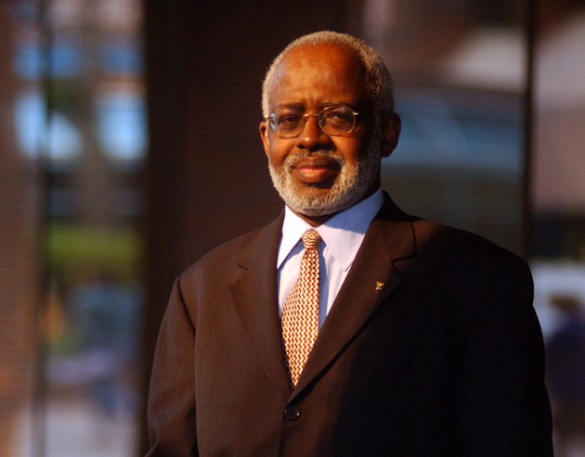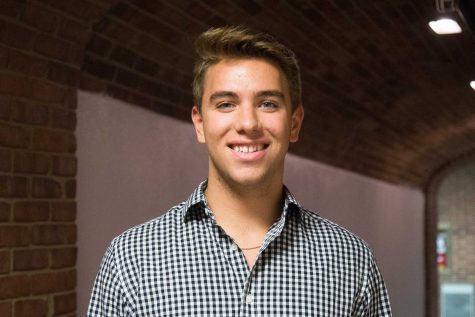Dr. George C. Hill retired from his position as Vice Chancellor for Equity, Diversity, and Inclusion and Chief Diversity Officer on July 1. Hill has held this position since Nov. 2015, and will continue serving as professor emeritus in medical education and administration and professor emeritus of pathology, microbiology and immunology.
While the Chancellor’s office conducts a search for Hill’s replacement, Tina Smith, associate vice chancellor and Chancellor’s Higher Education Fellow, will serve as interim vice chancellor for equity, diversity and inclusion and as interim chief diversity officer while the search is underway. Smith declined the Hustler’s request for comments at this time.
Chancellor Zeppos created the Office for Equity, Diversity, and Inclusion in November of 2015 and named Dr. Hill its first Vice Chancellor. Hill touched on the importance of the inception of the office and its efforts since then, including “critical listening conversations, partnering with all constituents within the institution and defining the importance and the need for inclusive excellence, which should be a continuous endeavor.”
Other such efforts by the office included an unconscious bias education program for the University and pilot research initiatives to gather data to support new approaches and ideas. This commitment towards broad inclusion earned the office the Caldwell Award, an honor bestowed by Vanderbilt Student Government annually “for the staff’s efforts to advance student initiatives and communication.”
Hill believes that “by addressing and increasing the representation of underrepresented individuals in all professions, dialogue will be facilitated and inclusive excellence will be achieved.” He also spoke highly of Chancellor Zeppos and Hidden Dores for helping to establish the office and ease its efforts.
Looking ahead, Hill believes that his successor will face challenges “ensuring that a broad diversity of individuals, ideas and experiences” are present in departments and committees across the Vanderbilt campus. He also pointed out the need to continue to “identify ways to have critical conversations in uncomfortable or new spaces.”
Dr. Hill believes that the issues our campus and country as a whole face are mainly centered on race, he said.
“It’s really a matter of race, and this is America’s most fundamental challenge…We need to engage in conversations that allow for discussions on race and the impact it has from personal interactions, privilege, and inclusion and begin to become comfortable with such dialogue.”
Following his departure from the Office for Equity, Diversity, and Inclusion, Dr. Hill plans to spend more time with his family and continue serving as a mentor. Hill will also be authoring a book on Levi Watkins, Jr., M.D.––the first African American student to enter the Vanderbilt University School of Medicine and a distinguished cardiac surgeon.
“The book will chronicle [Dr. Watkins’] life and accomplishments and also will speak from historical and current perspectives to the efforts to increase broad diversity at Vanderbilt.”
In a broader sense, Hill believes that difficult confrontations with diversity are both imminent and essential.
“The state of diversity in our country is uncomfortable and tough,” Hill said. “We must engage our past and learn from it. We cannot manage and pre-select the directions conversations and dialogues go. And we must be open to very difficult conversations. We must keep the focus on the issues and challenges and not avoid them by focusing on individuals, which deflects attention from the larger challenges that exist and must be addressed.”



